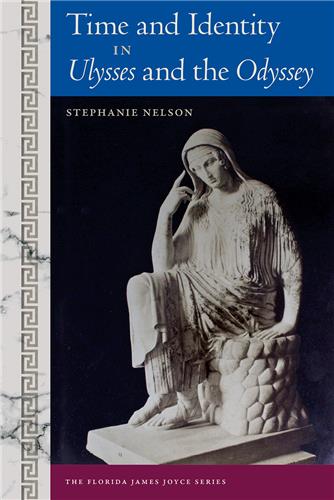Joyce, Joyceans, and the Rhetoric of Citation
Eloise Knowlton
Foreword by Zack Bowen, Series Editor
Hardcover: $59.95
- Series: The Florida James Joyce Series
"A new way to discuss Joyce's nearly impossibly complex compositional habits. . . . Knowlton has so sensitized the reader to the issue of ‘quotation’ that . . . [she] permits discussions which have simply not been possible before."--Garry Leonard, University of Toronto
James Joyce never used quotation marks, calling them "perverted" and "unreal." This book springs from that aversion, presenting the first full account of citation from the ancient world forward and tracing Joyce's transgressive relation to that history from Memorabilia to Finnegans Wake.
Eloise Knowlton argues that Joyce's rejection of the mark signals a wider and deeper rejection of the system it implements, one in which the subject/object separation presents an orderly containment of language and of readers. In part through his Irish oral heritage, Joyce inherited a tradition that dissolves these boundaries. Knowlton thus reads Joyce as both hinge and transition, as a voice moving between modern literary and philosophic history and what she calls a "postmodern meltdown of intertextuality."
From the literature of classical antiquity to Foucault, Barthes, and Derrida, Knowlton locates the rhetoric of quotation at four places crucial to contemporary debates: authorship, feminism, historiography, and modern criticism. While exploring the long-standing and incomplete discussion about language ownership, the book offers an original assessment of difficult Joyce texts and Joyce criticism and an illuminating discussion of the status of modern scholarship.
Eloise Knowlton is assistant professor of humanities at Boston University. Her essays have appeared in Style, Children's Literature Association Quarterly, and in the anthology Re-Reading the New.
James Joyce never used quotation marks, calling them "perverted" and "unreal." This book springs from that aversion, presenting the first full account of citation from the ancient world forward and tracing Joyce's transgressive relation to that history from Memorabilia to Finnegans Wake.
Eloise Knowlton argues that Joyce's rejection of the mark signals a wider and deeper rejection of the system it implements, one in which the subject/object separation presents an orderly containment of language and of readers. In part through his Irish oral heritage, Joyce inherited a tradition that dissolves these boundaries. Knowlton thus reads Joyce as both hinge and transition, as a voice moving between modern literary and philosophic history and what she calls a "postmodern meltdown of intertextuality."
From the literature of classical antiquity to Foucault, Barthes, and Derrida, Knowlton locates the rhetoric of quotation at four places crucial to contemporary debates: authorship, feminism, historiography, and modern criticism. While exploring the long-standing and incomplete discussion about language ownership, the book offers an original assessment of difficult Joyce texts and Joyce criticism and an illuminating discussion of the status of modern scholarship.
Eloise Knowlton is assistant professor of humanities at Boston University. Her essays have appeared in Style, Children's Literature Association Quarterly, and in the anthology Re-Reading the New.
No Sample Chapter Available
"A thought provoking theoretical critique of Joyce scholarship." - The Twentieth Century
--The Twentieth Century
"A provocative study of a convention that has both trapped and released us."--English Literature in Transition 1880-1920
--English Literature in Transition 1880-1920
"Not just a book on Joyce, as if that weren't enough. It is a book about the politics of citation in an academic context. A work that is sure to be cited in any future study of Joyce's language." -Irish Studies Review
--Irish Studies Review











